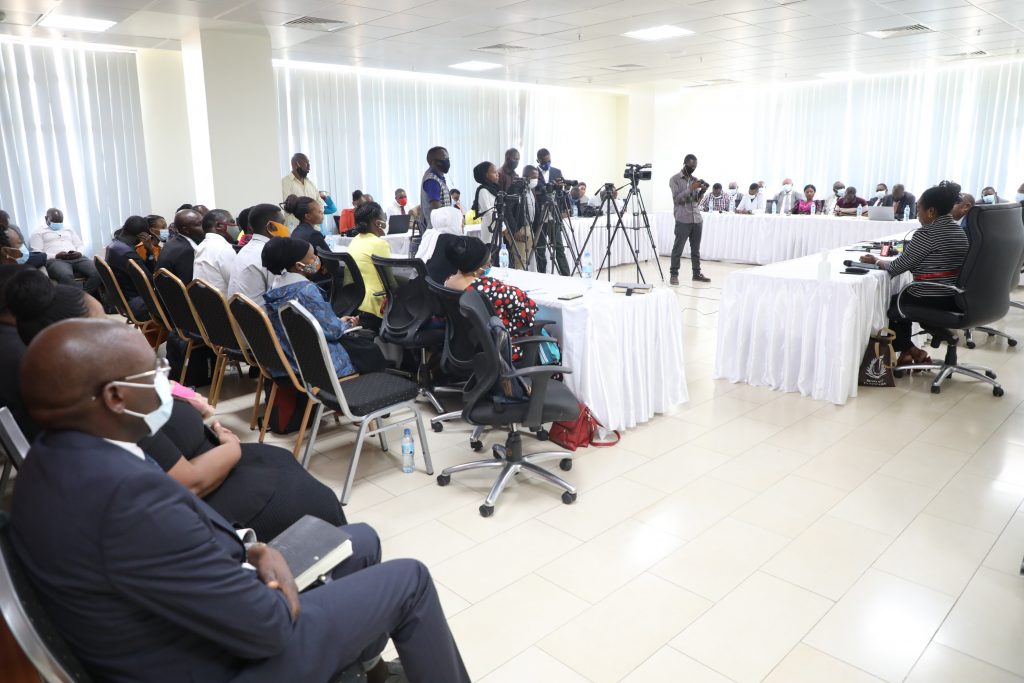
By Jaston Binala
The Bank of Tanzania (BoT) on Tuesday, July 27, 2021 announced five steps it has decided to take to end a serious cash crunch in the banking sector in the country.
The five steps meant to ease access to business credit in commercial banks include reduction of statutory minimum reserve requirement (SMR) which should boost liquidity in the banks. The Central bank is also introducing a special loan amounting to Tsh 1.0 trillion to banks and other financial institutions for on-lending to private sector. It is also reducing the risk weight on loans.
Talking to journalists at the BoT offices in Dodoma, Central Tanzania, Governor of the Bank of Tanzania, Prof. Florens Luoga announced the other steps as Relaxation of agent banking eligibility criteria and limitation of interest rate paid on mobile money trust accounts.
These measures come amid a crippling lack of access to credit in the economy as told by this website earlier.
On introduction of the special loan amounting to TZS 1.0 trillion to banks and other financial institutions for on-lending to private sector, the Bank of Tanzania shall provide a special loan to banks and other financial institutions at 3 percent per annum for pre-financing or re-financing of new loans to the private sector.
A bank wishing to access the special loan facility shall be required to charge interest rate not exceed 10 percent per annum on loan extended to the private sector. This measure intends to increase liquidity to banks and reduce lending rates, the Governor said.
On reduction of statutory minimum reserve requirement (SMR), the Governor said a bank that extends credit to agriculture shall be eligible to a reduction in SMR amount, equivalent to the loan extended.
In addition, a bank shall be required to submit evidence of lending to agriculture at interest rate not exceeding 10 percent per annum. This measure intends to increase lending to agriculture, which is the mainstay of Tanzanians. It also aims to reduce interest rate on loans to agriculture, he said.
On Relaxation of agent banking eligibility criteria, he said the Bank of Tanzania has removed the regulatory requirement of business experience of at least 18 months for applicants of agent banking business. Instead, applicants for agent banking business shall be required to have National ID Card or National ID Number.
This policy measure is expected to contribute to increase in loanable funds to banks through deposit mobilization. The measure also intends to lower lending rates, he said.
On Reduction of risk weight on loans Prof Luoga said the Bank of Tanzania shall reduce risk weight on different categories of loans in computation of regulatory capital requirement of banks. This measure will provide opportunity to banks to extend more credit to the private sector than before.

On Limitation of interest rate paid on mobile money trust accounts, Prof. Luoga said mobile money trust account balances held with banks shall be eligible to interest rate not exceeding the rate offered on savings deposit account by the respective bank.
This will contribute to lowering cost of funds to banks, thus helping to reduce lending rates he said.
These measures have been taken in accordance with the Bank of Tanzania Act, Cap. 197 and National Payment Systems Act, Cap 437.
The Bank of Tanzania shall provide additional details to banks, other financial institutions and mobile money providers on the measures adopted, the Governor said.
In addition to these measures, the Bank of Tanzania has directed banks and other financial institutions to implement strategies of lowering lending rates and to increasing deposit mobilization, he said.
The five measures have been taken in order to provide great impetus to fast increase in credit to the private sector and lower interest rates, thereby hastening recovery of the economy with effect from 27th July 2021.
Prof. Luoga also gave a brief ‘picture’ on the country’s macro-economic position. He said prior to the outbreak of COVID-19 pandemic, macroeconomic conditions in Tanzania were stable.
The economy experienced robust growth, which averaged 6.7 percent from 2010-2019 and inflation declined to as low as 3.8 percent in 2019. Credit extended to the private sector by banks grew at 15 percent, while lending rates declined to 17 percent from more than 20 percent.
The pandemic has affected economic activities, partly due to lockdown measures and travel restrictions implemented in countries which trade with Tanzania. In response, the Government has been taking measures to lessen impact of the pandemic to economic activities and promote growth. However, the pace of growth slowed to 4.8 percent in 2020 from 7 percent in the preceding year.
Private sector credit growth also has been low, ranging from 2.3 percent to 9.1 percent. Interest rates on loans charged by banks have remained high, at about 17 percent, despite monetary expansion and other measures adopted.



